News
Valio, Fazer partner on salt reduction
14 Apr 2016Finnish dairy products company Valio and baking company Fazer have announced that they have together tackled the salt reduction challenge and say they are bringing to stores Finns' favourite products with a wholesome taste but less salt.

Finnish dairy products company Valio and baking company Fazer have announced that they have together tackled the salt reduction challenge and say they are bringing to stores Finns' favourite products with a wholesome taste but less salt. The unique Valio ValSa milk salt innovation makes it possible to reduce salt in food without compromising on taste, the companies said.
People eat too much salt in Finland and all around the world, Valio notes. Salt is the most significant risk factor of high blood pressure, and it is the biggest factor in the world reducing the number of healthy life years. Finns want to reduce their salt consumption, the company believes, and nearly 30% of Finns report that they follow a low-salt diet.With the help of Valio ValSa, Valio and Fazer say they can manufacture products that contain less salt without having to compromise on taste.Valio is bringing to stores the Valio Polar 15 cheese and the Valio Oivariini spread, which have been manufactured by replacing part of the table salt with milk salt, and therefore the products have 50% less salt than ordinary margarine spreads and cheeses. Fazer will use milk salt in the manufacturing of the new, lower salt Oululainen Reilu Futissämpylä bread.“Reducing salt without compromising on taste is an unparalleled innovation, globally,” said Executive Vice President Tuomas Salusjärvi from Valio. “The development of the Valio ValSa milk salt innovation has taken years, but the end result is rewarding. With this innovation, we can be part of the solution in reducing the adverse health effects of salt.” “Fazer Bakery is renewing the whole bread product group in a big way and wants to bring new solutions to promoting well-being,” said Vice President New Product Development at Fazer Bakery, Heli Anttila.”An important part of this goal is reducing salt in breads, and therefore it was natural for us to start product development collaboration with Valio. We have already renewed our recipes and made changes to raw ingredients, which will help us to reduce the amount of salt in bakery products by approximately 35,000 kg in 2016. Milk salt creates new opportunities for us.” Milk salt consists of the natural minerals in milk: potassium, iodine, magnesium, calcium, as well as sodium, and contains nearly 80% less sodium than ordinary table salt. Ordinary table salt consists almost completely of sodium chloride. The salty taste in milk salt is derived from the potassium that milk naturally contains, instead of sodium. When part of the ordinary table salt used in the manufacturing of products is replaced with milk salt, the products gain a salty taste with a significantly smaller amount of sodium.Related news
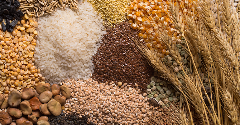
Sustainable grains present a healthy growth opportunity
3 Oct 2024
Food insights provider SPINS unveils the latest trends in the sustainable grains field, exploring how seven leading grains show healthy growth despite challenges in the global value chain.
Read more
New environmental food scoring standards emerge
30 Sep 2024
EIT Food and Foundation Earth collaborate to launch environmental food scoring for products entering the global supply chain.
Read more
Africa progresses with food transformation strategy
19 Sep 2024
Large-scale efforts are underway to drastically change the African food sector with a $61 billion (€55 bn) set of proposed transformation plans to be implemented across forty countries. Yet there are concerns that this initiative severely jeopardises s...
Read more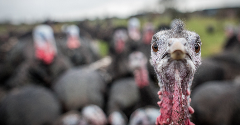
Diestel is first turkey producer to snag Regenifed certification
17 Sep 2024
In the US, Diestel Family Ranch, a family-owned turkey farming venture, has become the first producer to gain Regenified certification for its whole turkey and processed turkey product ranges.
Read more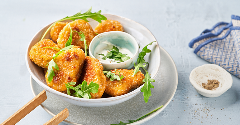
Upside Foods sues Florida over cultivated meat ban
10 Sep 2024
In May, Florida became the first US state to ban cultivated meat's sale, manufacture, and distribution. Upside Foods, a cultivated chicken startup, has filed a federal lawsuit in response, arguing that the law is unconstitutional.
Read more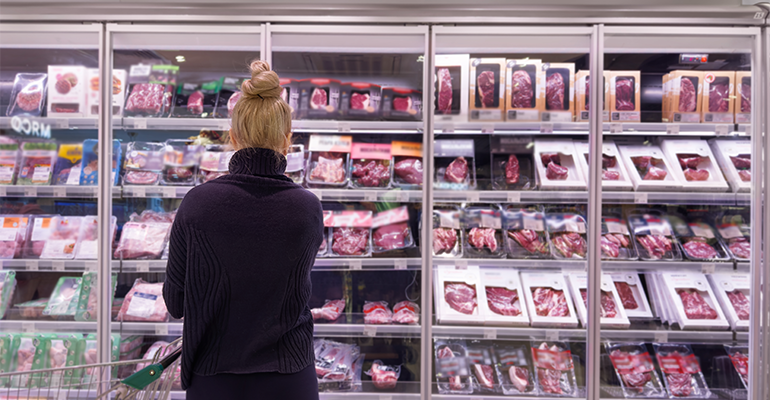
European consumers want more freedom to choose biotech-based food
3 Sep 2024
Survey findings point to growing levels of interest in cultivated meat as European consumers say they want the freedom to choose the lab-based products.
Read more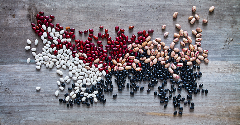
How alternative proteins could transform US agriculture and restore natural ecosystems
30 Aug 2024
As the US seeks new strategies to meet its environmental targets, a recent report from the Good Food Institute (GFI) and Highland Economics highlights the potential of alternative proteins to drive significant progress.
Read more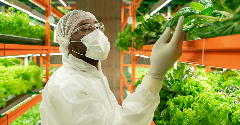
How insecure are our global food systems?
29 Aug 2024
Countries across the globe are struggling to secure safe and accessible food, according to recent reports.
Read more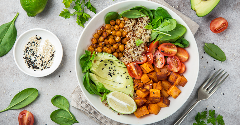
Austria’s new dietary guidelines recommend less animal protein and more plants
23 Aug 2024
Austria's dietary guidelines have been updated to reflect health and climate parameters. Both an omnivorous food pyramid and a vegetarian version are included, marking the first time a separate pyramid for vegetarians is provided.
Read more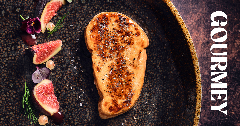
Will ‘foie gras’ become the EU’s first approved cultivated meat?
20 Aug 2024
French startup Gourmey has submitted its cultivated foie gras for approval in the European Union (EU), signalling the first application of its kind in the region.
Read more